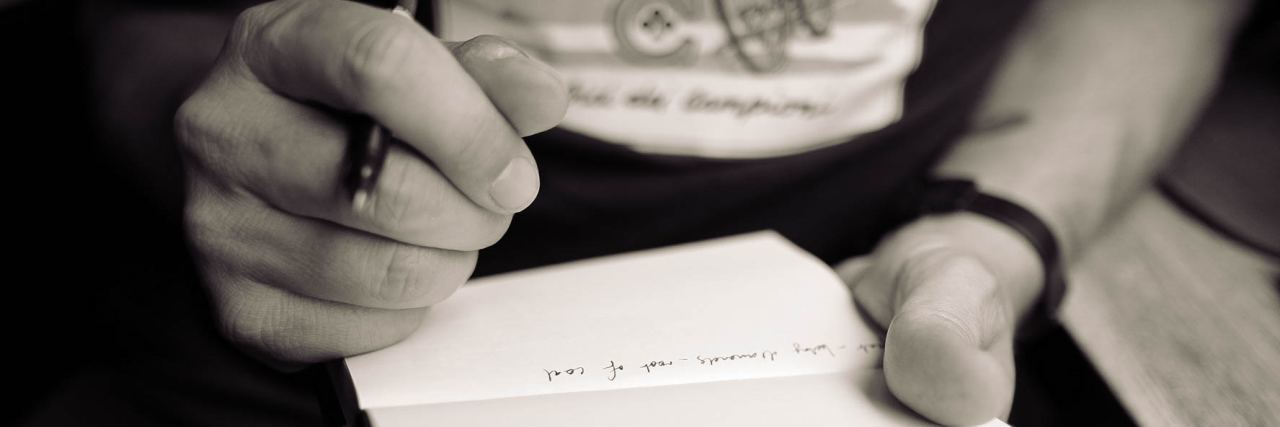I wrote that last night, just before turning the volume off on my phone, shutting my laptop down and going to bed. Well, not bed. The couch. I couldn’t bring myself to travel the 30 feet of empty space between my couch and my bed. I not only didn’t have the energy; I didn’t see the point.
It’s tough to share something like that, to know some people are going to judge me for it. It’s harder knowing that with so many people on my friends list, many of whom are family, some will silently wish I’d just go away. When I share something like that, I understand the consequences and what peoples reactions might be. They’ll think I’m being dramatic, fishing for attention or trying desperately to get people to pay attention to me.
Some people will look at it and jump to conclusions. They’ll think I’m suicidal, in crisis, or “unhinged.” Inevitably, there will be advice, much of it well-intentioned but harmful. There will be text messages, phone calls and Snapchats. When I feel that way, I’ll ignore them all.
That’s just what I did. I ignored everything. I didn’t open a single text message or answer the phone. I unplugged completely as I drifted off into a troubled but welcome slumber. I told myself, “I’ll deal with it in the morning. I just can’t face any of them right now.”
Many of those who reached out have been friends of mine for long enough to know I probably won’t answer. They do it anyway though. They do it because they know the simple act of reaching out makes a difference.
They know it because they’ve been there.
Or, they know it because I’ve told them it makes a difference.
I’ve been called brave for sharing my story, for letting the world into my mind and trying to describe what it’s like to be depressed and anxious. I don’t think sharing these things has anything to do with bravery. Most days, I don’t even feel confident, let alone brave.
I do feel like I need to do what’s right though. I’m fortunate to be in a position to share, where doing so won’t damage my reputation with a law firm, board of directors, medical community or brokerage agency. I don’t have to worry about having my flight privileges revoked or being relegated to desk duty for telling the world I need help and I’m having trouble coping.
I tell my story because I can. I do it because people need to know they aren’t alone. Sometimes, it helps to know someone else is having a difficult time. The shared experience may not bring us out of the darkness, but it can reduce the feelings of isolation that all too frequently become deadly.
Reaching others like me isn’t the only reason I share though. I share for those who can’t experience the desolation and hopelessness.
I’m fortunate enough to write well and convey feelings and emotions through the black and white syntax of a computer. Writing has given me the ability to provide people with a glimpse of what it’s like and how little control we have over the way we feel.
There are, of course, those who choose to ignore my words. They’ll continue to assume, to the detriment of many, that mental health is a choice. These are the people who need to see the brutal honestly most of all. I share my darkest moments to humanize people like me.
As it is with racism, religious bigotry and homophobia, it’s easy to demonize and persecute people when there isn’t a relationship, a connection, to break the cycle of hate. I share my story because it allows me to connect with people and gives me an opportunity to soften their views. Maybe, just maybe, they’ll reach out at just the right moment and save someone’s life.
Some will continue to believe I’m just in it for the notoriety, the attention that comes along with vulnerability. I can live with that. I will continue to tell my truth, to share my journey. It may be a Facebook post, a Tweet, or published on a website. What’s important isn’t so much where I share, just that I do. From the highest highs to the lowest lows, it’s important for people to have at least a glimpse of what impact poor mental health can have on our lives. I share because it’s the right thing to do.
If you or someone you know needs help, visit our suicide prevention resources page.
If you need support right now, call the National Suicide Prevention Lifeline at 1-800-273-8255, the Trevor Project at 1-866-488-7386 or reach the Crisis Text Line by texting “START” to 741-741.
We want to hear your story. Become a Mighty contributor here.
Photo by Calum MacAulay on Unsplash

